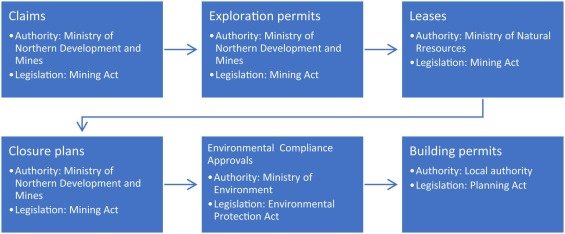Mining in Africa Regulation and Development
Mining in Africa: Regulation and Development
The mining industry is a cornerstone of economic growth and development across Africa, contributing significantly to GDP, employment, and export revenues. However, the sector’s success hinges on effective regulation and sustainable development practices. Striking a balance between attracting investment, ensuring equitable benefit-sharing, and protecting the environment is critical for Africa’s mining future. In this blog post, we will explore the regulatory frameworks governing mining in Africa, the challenges of implementing these regulations, and how sustainable development can drive long-term prosperity.

The Importance of Mining Regulation in Africa
Regulation is essential for ensuring that mining activities are conducted responsibly, transparently, and sustainably. Effective regulatory frameworks help:
- Protect the environment and local communities.
- Ensure fair revenue distribution between governments, companies, and communities.
- Attract foreign direct investment (FDI) by providing clarity and stability.
Without proper regulation, mining operations can lead to environmental degradation, human rights abuses, and economic inequality. Many African countries have reformed their mining laws in recent years to address these issues and align with global best practices.

Key Aspects of Mining Regulation in Africa
1. Licensing and Permitting
Mining projects require various licenses and permits, including exploration licenses, mining rights, and environmental permits. These processes ensure that companies meet legal, technical, and environmental standards before commencing operations.
- South Africa : The Mineral and Petroleum Resources Development Act (MPRDA) governs licensing and requires companies to demonstrate social and environmental responsibility.
- Ghana : The Minerals and Mining Act mandates competitive bidding for mining licenses to ensure transparency.

2. Revenue Sharing and Taxation
Governments regulate how mining revenues are shared through taxes, royalties, and other fiscal instruments. Fair taxation ensures that host countries benefit economically from their mineral wealth.
- Democratic Republic of Congo (DRC) : The DRC introduced higher royalties on strategic minerals like cobalt to capture more value from its resources.
- Zambia : Royalties on copper exports fluctuate based on global prices, ensuring the government benefits during periods of high demand.
3. Environmental Protection
Environmental regulations aim to minimize the ecological impact of mining activities. These include requirements for land rehabilitation, water management, and waste disposal.
- Namibia : The Environmental Management Act mandates detailed environmental impact assessments (EIAs) for all mining projects.
- Botswana : Strict regulations ensure diamond mines operate sustainably, with measures to rehabilitate mined areas.

4. Community Engagement and Benefit-Sharing
Regulations increasingly emphasize the need for mining companies to engage with local communities and share benefits equitably. This includes creating jobs, funding infrastructure projects, and supporting small businesses.
- Tanzania : The Mining Act requires companies to allocate a percentage of profits to community development funds.
- Mozambique : Laws mandate that mining contracts include provisions for local content and employment.
Challenges in Implementing Mining Regulations
1. Weak Enforcement
Many African countries struggle to enforce mining regulations due to limited resources, corruption, and lack of capacity. This undermines efforts to ensure compliance and accountability.
2. Regulatory Uncertainty
Frequent changes to mining laws create uncertainty for investors. For example, sudden tax hikes or policy reversals can deter long-term investments.
3. Balancing Economic Growth and Sustainability
Achieving a balance between economic development and environmental protection is challenging. Over-reliance on mining revenues can also make economies vulnerable to commodity price fluctuations.
4. Informal Mining
Artisanal and small-scale mining (ASM) often operates outside formal regulatory frameworks, leading to unsafe conditions, environmental damage, and conflicts with industrial miners. Formalizing ASM remains a significant challenge.
Sustainable Development in African Mining
Sustainable development in mining focuses on maximizing economic benefits while minimizing social and environmental impacts. Here’s how it can be achieved:
1. Value Addition and Local Processing
Encouraging local processing of raw minerals adds value to exports and creates jobs. For example:
- Zimbabwe has prioritized lithium refining to become a regional hub for battery production.
- Namibia is developing downstream industries for rare earth elements.
2. Green Mining Practices
Adopting eco-friendly technologies reduces the environmental footprint of mining operations. Examples include:
- Solar-powered mines in South Africa.
- Water recycling systems in Zambia’s copper mines.
3. Community Empowerment
Mining companies can empower local communities by investing in education, healthcare, and infrastructure. For instance:
- Anglo American’s enterprise development programs support small businesses near its mines.
- De Beers funds schools and clinics in Botswana’s diamond-rich regions.
4. Regional Collaboration
Initiatives like the African Continental Free Trade Area (AfCFTA) promote cross-border collaboration, enhancing supply chain efficiency and driving economic integration.
Case Studies: Regulation and Development Success Stories
1. Botswana: Diamonds for Development
Botswana has successfully leveraged its diamond wealth to transform its economy. Strict regulations ensure transparency, while partnerships with companies like De Beers fund infrastructure and public services.
2. Ghana: Gold Mining Reforms
Ghana’s reforms to its mining laws have increased transparency and attracted foreign investment. The country now ranks among Africa’s top gold producers, with strong environmental and community safeguards.
3. Namibia: Rare Earths and Sustainability
Namibia is emerging as a leader in sustainable mining, particularly in rare earth elements. Stringent environmental regulations and investments in green technologies position the country as a model for responsible resource extraction.
Frequently Asked Questions (FAQs)
Q1: What are the main challenges of mining regulation in Africa?
A1: Key challenges include weak enforcement, regulatory uncertainty, balancing economic growth with sustainability, and addressing informal mining.
Q2: How do African countries ensure equitable benefit-sharing from mining?
A2: Countries use tools like royalties, taxes, community development funds, and local content policies to ensure that mining benefits are shared fairly.
Q3: Why is sustainable development important in African mining?
A3: Sustainable development ensures that mining activities contribute to long-term economic growth, protect the environment, and improve the lives of local communities.

